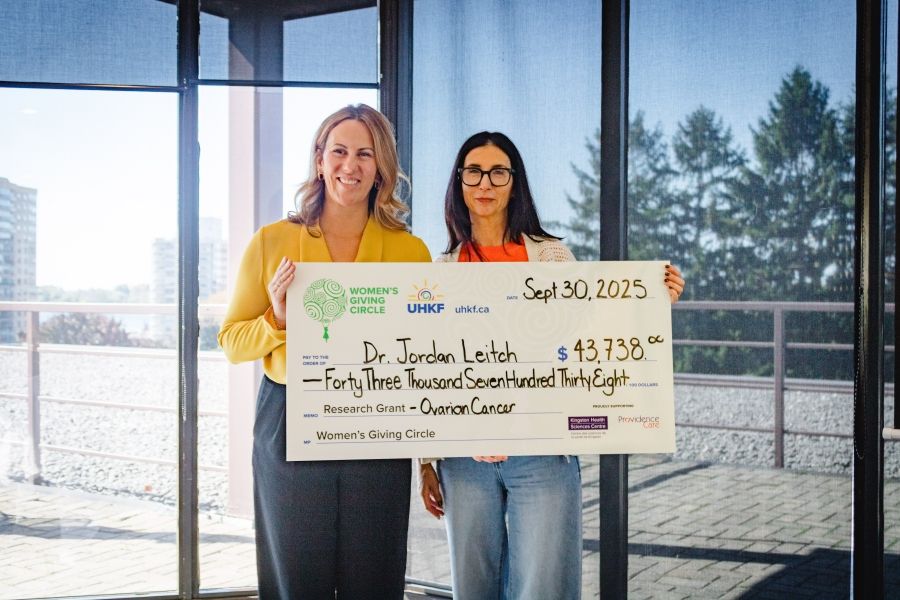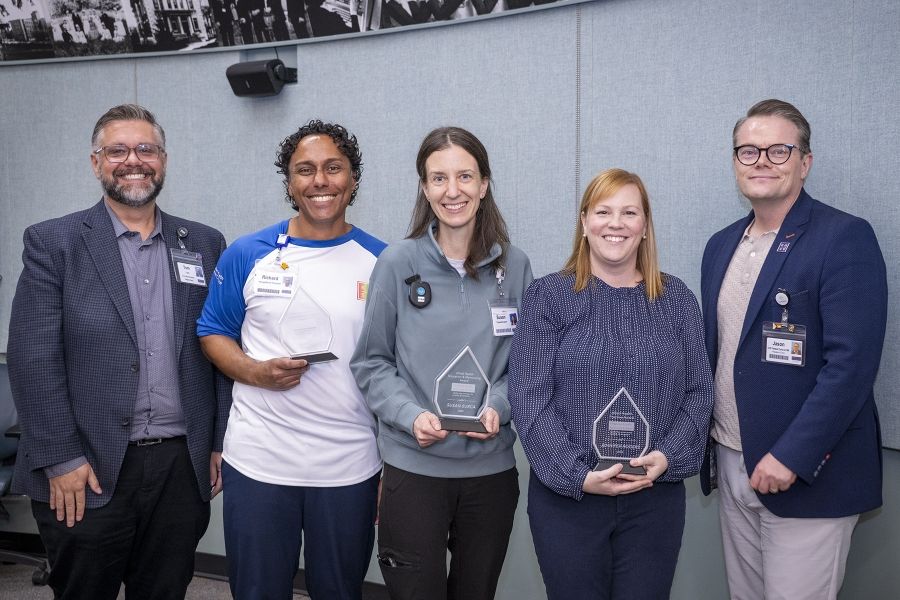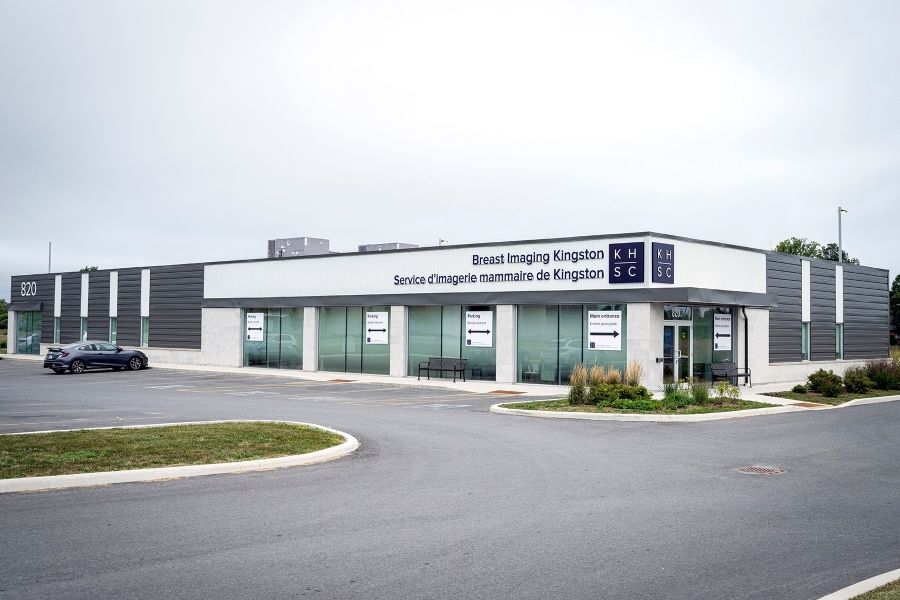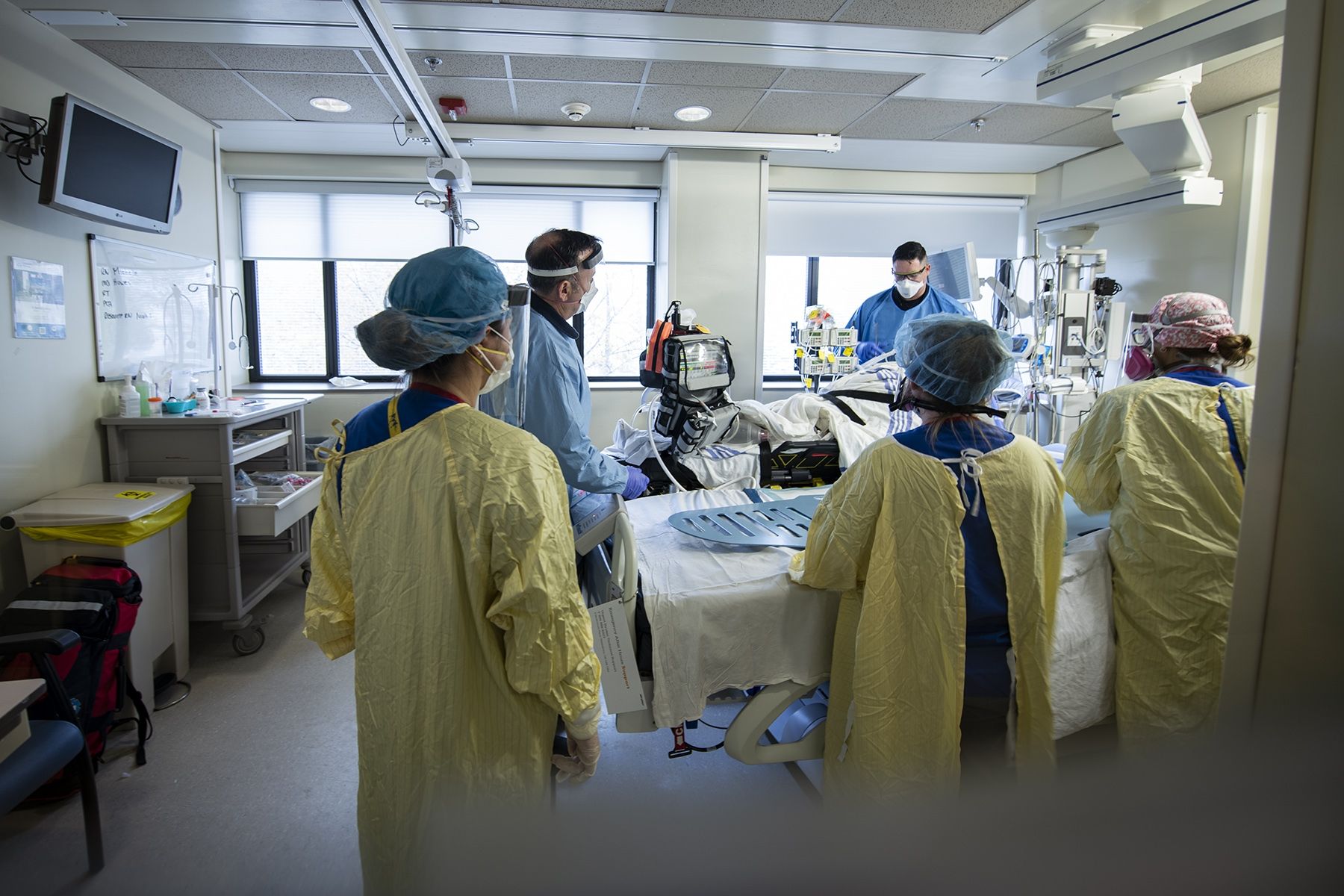
The numbers are well documented, but can still be staggering.
Over the course of the last year more than a million Canadians have tested positive for COVID-19; nearly 25,000 have died.
In Ontario, Intensive Care Units (ICUs) are bursting at the seams; at times, more than 800 people across the province have been critically ill and in the ICU as a result of the virus.
Locally, more than 100 patients have been transferred from out of region to Kingston Health Sciences Centre (KHSC), with more than 60 of those needing care in the ICU.
However, sometimes it can be hard to remember that each one of those numbers represents a person, and a family, whose lives have been turned upside down.
Lewellyn Allworth too is more than just a number. He is a son, a father and a husband. He was transferred to KHSC’s ICU from a hospital in the Greater Toronto Area (GTA), while on a ventilator, in a desperate effort to save his life.
This is his story.
‘Sh*t got real, quick’
Allworth, who is from Whitby, is 39 years old and has a son who will be turning six at the end of June. He has no underlying health conditions.
“I’m not a body builder or anything, but I’m not an unhealthy person,” says Allworth. “This could happen to anyone, very easily and very quickly. There was no heads up or indication…I tested positive and once I was at home in bed it hit me like a ton of bricks. I felt awful.”
He describes himself as having ‘white coat syndrome,’ meaning even the thought of any routine medical care or procedure caused him anxiety. So as his condition began to worsen while he was at home, he apprehensively debated whether it was time to seek help.
“I remember I was thinking about going to the doctor and my cat was nudging me while I was in bed and was really just bugging me. I think the cat was some sort of sign that I needed to go get help. So I told my wife to pack a bag and call the ambulance. The last thing I really remember was being in the ambulance and going to the hospital in Ajax.”
That was on April 5. By April 12, he was being transferred hundreds of kilometers by land ambulance to Kingston. His transfer was part of a coordinated effort by Ontario Health to ease the burden on ICU’s in Toronto as they struggled to care for the surging volume of critically ill patients from COVID hotspots in the GTA.
‘People here became my family’
When Allworth arrived at KHSC, he was extremely sick and required a ventilator to help him breathe.
“I later learned that my PF factor (a number used to generally determine the condition of a patient’s lungs) was 104. In a healthy person that number should be around 400. Apparently 250 is when they think about putting you on a ventilator and I was much lower than that,” says Allworth. “I believe I was diagnosed with COVID-related pneumonia and had a blood clot on my lungs.”
While he doesn’t remember much of his first few days in the ICU, he was left with a clear impression of how much the staff cared for the wellbeing of himself and their other patients.
“The best thing for me was to end up in Kingston and my family agrees,” he says.
“The biggest thing the government did for me was to get me to this hospital. The people here became my family; they saved my life and I wish I could connect with them all again to say thank you. It’s the only place I’ve ever seen this level of teamwork and camaraderie. Everyone seems like they love what they do and were all so kind to me. The Kingston community should be very proud of this hospital.”
“I remember one of my nurses came by my room and kept me company and talked to me for an hour. Another finished up his shift, went home to rest for a few hours, then came back to make sure there was someone to sit with me. My physiotherapist would bring music in for me to listen to. I had a non-denominational minister come sit with me. You can just see that these people put their heart and soul into it.”
Meanwhile, the entire care team worked hard to keep his family, who were hundreds of kilometers away, feeling connected while they themselves battled their own COVID illnesses.
“I think it was harder on my family because I didn’t know or remember much. For the first little bit I didn’t even realize I was in Kingston. It really was traumatic for my family and, I don’t think, if I didn’t come here to Kingston that my family would have gotten the same level of communication from another hospital. The staff were so good at calling them and doing video chats. I remember one of the staff members would call my wife while they were driving home from work just to let her know how I was doing.”
‘The miracle patient’
During his time in the ICU, Allworth began to show signs of improvement, in contrast to the sad reality of the others who continue to deteriorate despite the best efforts of medical teams.
“I do know my turn-around was pretty quick. One of the nurses called me the miracle patient with how I recovered.”
After 12 days, he was able to be transferred out of the ICU to an inpatient COVID unit on the tenth floor of KHSC’s Kingston General Hospital (KGH) site to begin his recovery. Then, amazingly, on April 28, 23 days after he first arrived at the hospital in Ajax, he was discharged into the arms of his excited father who had driven all the way to Kingston to pick him up.
He is now feeling hopeful and looking ahead.
“I’m going to have my good days and bad days, but I’m not going to focus on the bad. This is going to take me months to recover from and I am going to focus on incremental improvements. Getting my lung capacity back is going to be the biggest challenge going forward and there’s still a lot we don’t know about this disease so it will be a lot of work with my family doctor in the future to monitor my health.
It will be important for me to live the best lifestyle I can and to recognize my limits until I am back to whatever normal looks like for me. I am going to make my health and family my priority in my life. This has made me focus on what was most important to me moving forward.”
Gallery
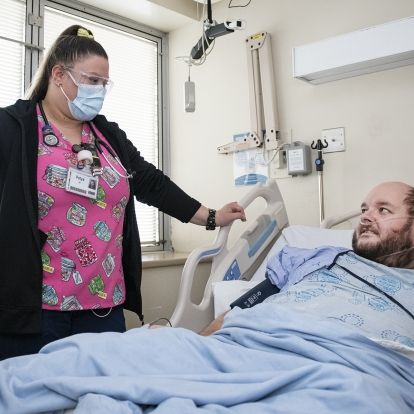
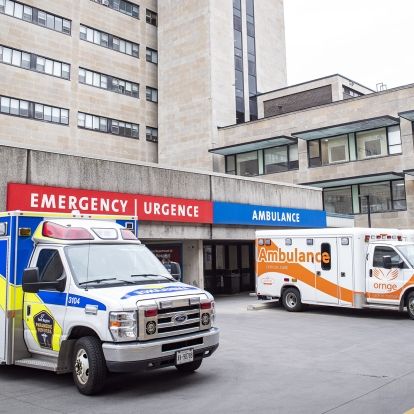
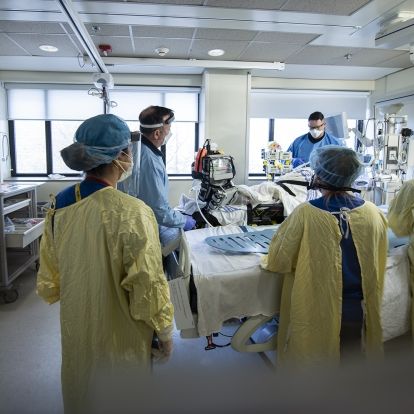
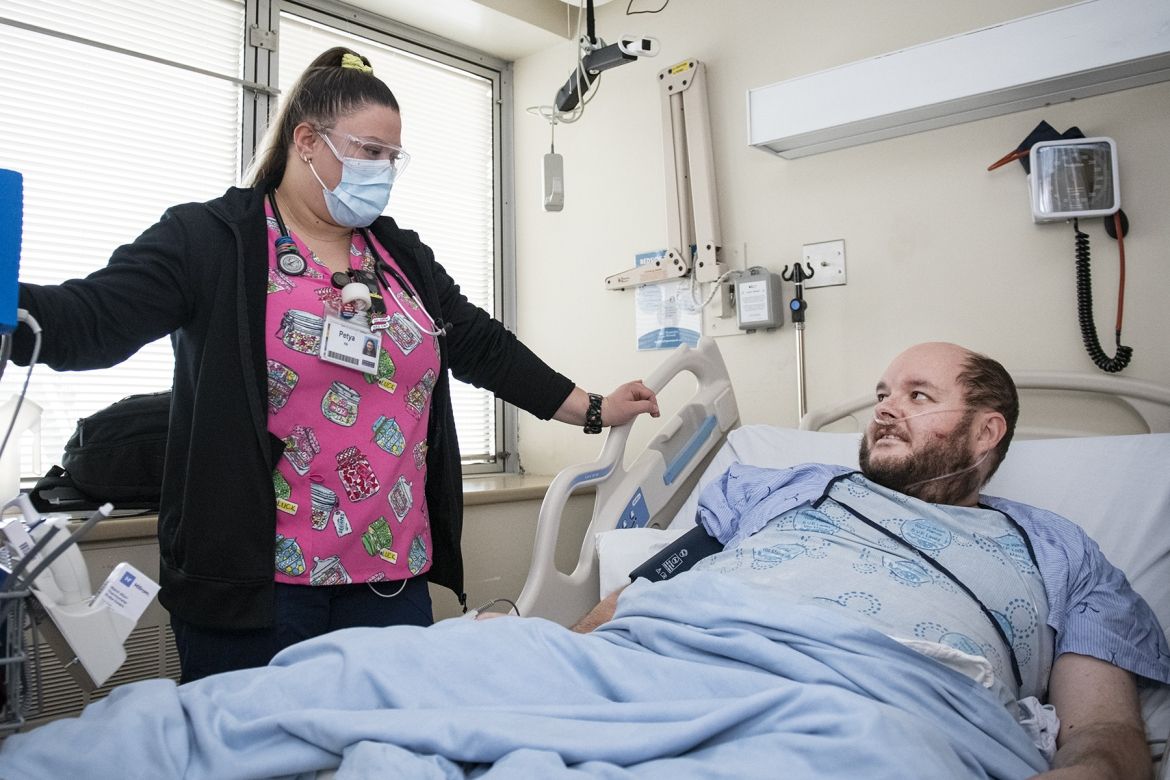
After 12 days, he was transferred out of the ICU to an inpatient COVID unit to begin his recovery.
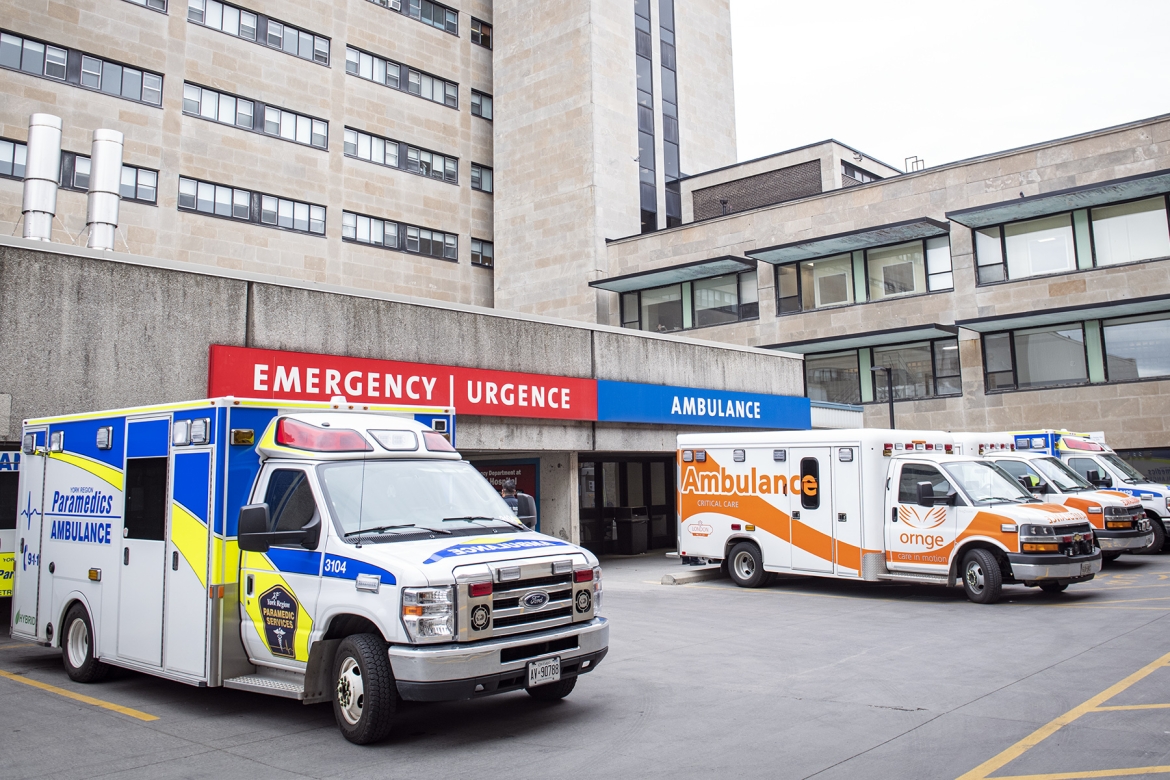
Ambulances from the York Region and Ornge transfer patients to the KGH site. Allworth was also transferred by land ambulance
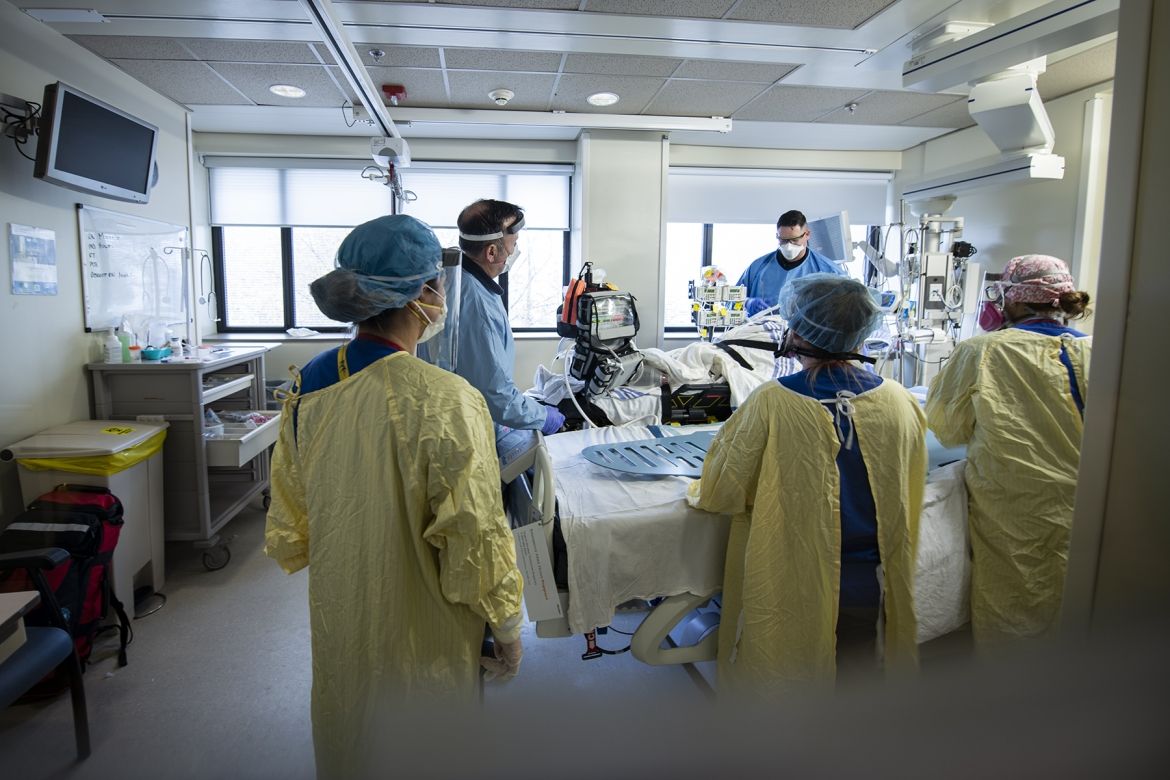
Allworth was cared for in the Kidd 2 ICU

